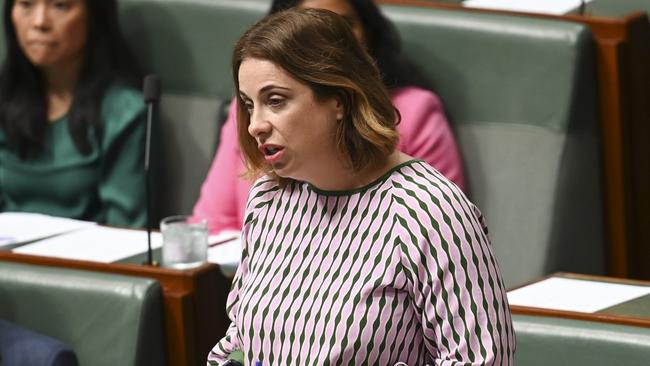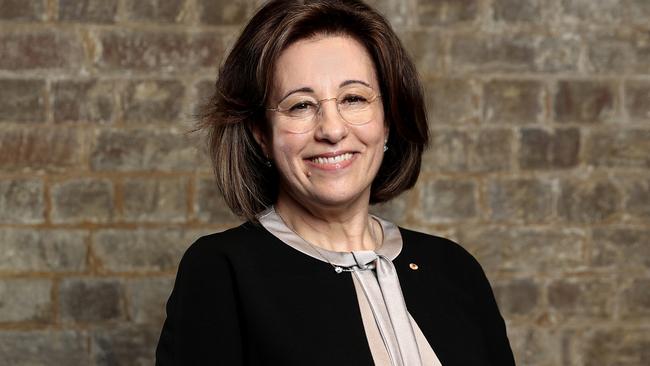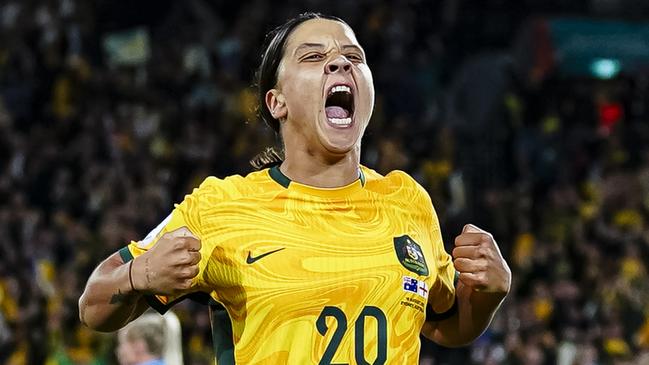Federal Sports Minister Anika Wells concedes Australia’s sporting systems “aren’t equal”
2023 was a banner year for women’s sport in Australia, with the rise of the Matildas and the domination of our swimmers. But to those behind the scenes, there’s still plenty more to do.
Women's sport
Don't miss out on the headlines from Women's sport. Followed categories will be added to My News.
Federal Sports Minister Anika Wells has committed to doing more to help women thrive on and off the field after conceding Australia’s sporting systems “aren’t equal”.
A brief look across the women’s sport landscape in 2023 would suggest women’s sport in Australia is flying.
The Diamonds and Australian cricket teams won World Cups in South Africa, swimmers Ariarne Titmus and Kaylee McKeown and field athlete Nina Kennedy claimed world championship titles that set them up for tilts at Olympic gold in Paris later this year.
And then there were the Matildas winning the hearts and minds of millions around the country who climbed aboard the Tilly Train during a home World Cup.
But there remain plenty of structural issues for women in sport.
In starting to compile News Corp’s annual list of the most powerful and influential women in Australian sport, the most shocking observation in reassessing our 2023 top 30 was that six women had left their position of significant power.

One athlete – former national cricket captain Meg Lanning, who announced her retirement from international cricket last year – is among the group.
The rest – former Queensland Premier Annastacia Palaszczuk, WA Cricket boss Christina Matthews, former Netball Australia CEO Kelly Ryan, Swimming Australia chief executive Eugenie Buckley and ex AFLW general manager Nicole Livingstone – were leaders and policy influencers of significant gravitas who have stepped away from their roles.
Australian Sports Commission chair Josephine Sukkar is also set to leave her spot in the coming months after being told she would have to reapply for her position.
It points to a massive structural imbalance that has not escaped attention at the highest echelons.
Wells has certainly noticed – and is determined to initiate change.
“This issue is at the forefront of my mind,” Wells said.
“Australia’s success in female sport shouldn’t be seen as a sign our systems are fair.
“Our sporting systems aren’t equal and that’s why I am committed to doing more to help women thrive on and off field.
“Although female participation at grassroot level is increasing, girls are far less likely to progress to professional or high-performance roles compared to men.”

If there’s an idea that sport’s glass ceiling has been shattered due to the number of women appearing in positions of power, it seems there’s another barrier beyond that, that is preventing them from soaring once they get there.
Kim Anderson, head of marketing at last year’s Women’s World Cup, said being a woman in a high-profile position in sport was still “a battle of resistance” at times.
“It is still a challenge for women to succeed but there’s a lot of new leaders out there,” she said.
“When I was first starting out in the sports industry around the Sydney Olympics, there weren’t many sports organisations being led by women.
“It was sort of a vacuum of role models you could look up to you and lots of barriers to your growth and your potential earning capacity.”
Anderson, who is among the speakers at the high-profile SportNXT conference in Melbourne from March 19-21, left the sports industry to gain experience in roles in London and New York before returning to Australia, and eventually, the World Cup role.
“That was something I noticed when I came back from New York and London was that had really changed,” she said.
“Sam Kerr was on the back of sports pages, there were women leading a lot of organisations and so, I do think changes is happening, but it’s not without it sort of bumps along the road.”
It’s a well-worn sporting cliche: getting to the top is hard – staying there is even more difficult.

The challenge is not just for athletes though. Those bumps include the way women in power are spoken about.
From “turbulence in the organisation”, to suggestions of “power struggles”, “key stakeholders losing faith”, and discussions around “leadership style”, there’s little doubt that women wear more criticism than men in the same positions – warranted or not.
But the next wave of young girls lacing on their boots, picking up a ball or putting on their goggles dreaming of becoming the next Sam Kerr, Liz Watson or Katja Dedekind need role models on boards, in front of microphones and holding clipboards as well if they are to realise their full potential.
“We must and we will do more to ensure female leaders are set up for success so they can usher through the new generation of women and girls in sport,” Wells said.
More Coverage
Originally published as Federal Sports Minister Anika Wells concedes Australia’s sporting systems “aren’t equal”




